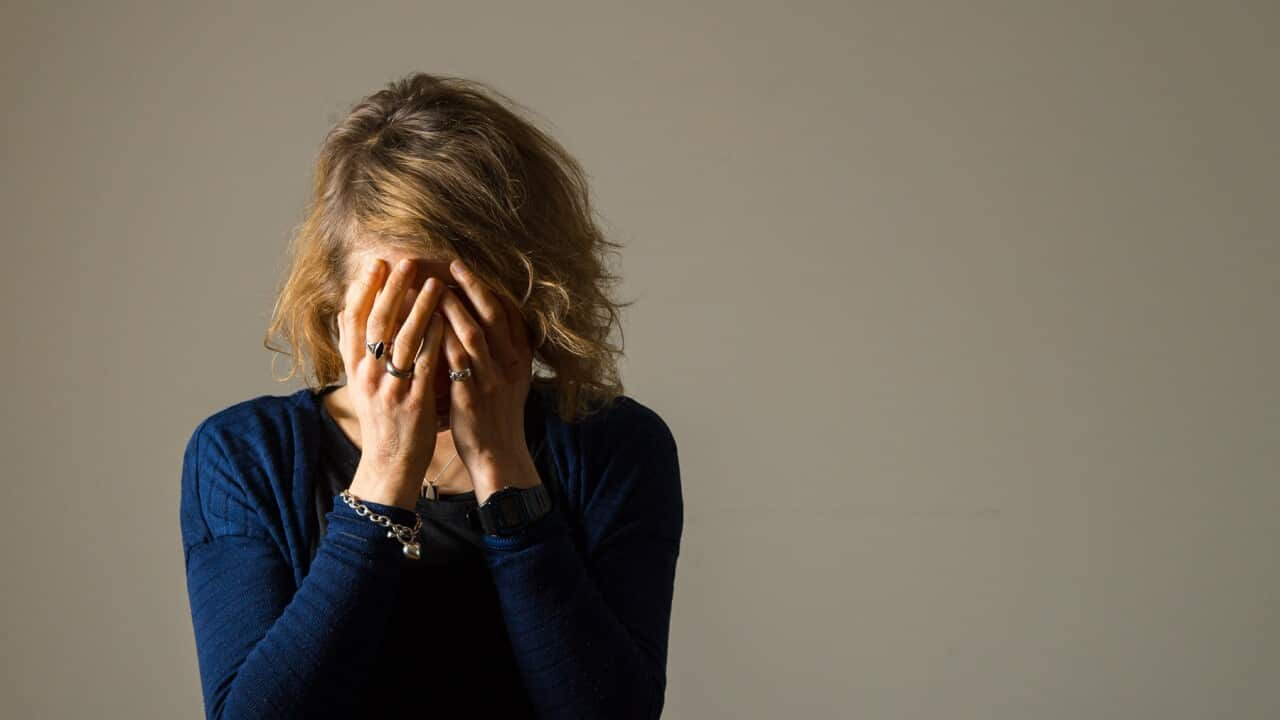Melbourne-based rapper ZIIMUSIC appears effortlessly cool on camera. You wouldn’t know that before the coronavirus lockdown even an interview like this could lead him to have a panic attack.
“After becoming aware of where this anxiety came from, it helped me sit differently when it came to live shows and even to this interview,” he tells SBS News.
“Before doing the work on my mental health, I would have had panic attacks, I would have not been able to articulate myself the way that I'm doing now.”
ZIIMUSIC is a rapper, multi-instrumentalist, photographer and poet in his 30s.
Born in Zimbabwe’s capital Harare, he came to Australia in 2005 to study IT at Melbourne’s Deakin University and says being a creative was never his ambition. “It became a coping mechanism to deal with how the world interacts with me, being a person who's experiencing life through a black body,” he says.
“It became a coping mechanism to deal with how the world interacts with me, being a person who's experiencing life through a black body,” he says.

ZIIMUSIC was born in Zimbabwe. Source: Supplied
He had a big 2020 planned - preparing to release new music and organise an Australian east coast tour - but coronavirus restrictions quickly put things on hold.
The pandemic has left Australia’s arts industry with uncertainty around the future of live performances and festivals. The arts and recreation sector was the second worst-hit area of the economy when COVID-19 restrictions were introduced in the middle of March, according to Australian Bureau of Statistics data.
It impacted musicians and artists severely, many of whom were employed on short-term contracts. A survey of Media, Entertainment and Arts Alliance members in May found 35 per cent of them were ineligible for JobKeeper.
“A lot of people lost their jobs and couldn't access finances through JobKeeper,” ZIIMUSIC says.
“I imagine that it would bring about some sort of anxiety [for artists] because we don't know how long this COVID situation is going to last for. Art is something that is very much not appreciated until it's not there.”
A Swinburne University of Technology survey of more than 2,500 Australians, released in July, found 30 per cent of respondents reported high levels of social anxiety since the COVID-19 pandemic began.
And the issue isn't going away.
Research released in September by the Australian National University found more than three in five Australians (62.6 per cent) felt anxious or worried about COVID-19, an increase from 57.3 per cent in May.
Dr Grant Blashki, lead clinical advisor for mental health charity Beyond Blue, says when Victoria reintroduced tough COVID-19 resections in July, calls to Beyond Blue skyrocketed.
“I think for a lot of people this has been a big change for them. People will be speaking about 2020 for a long time.”
In the wake of the pandemic, the federal government has said mental health and suicide prevention is a national priority.
It was announced in the budget on Tuesday that $5.7 billion would be spent on mental health services this financial year, an increase of $148 million on last year.
The number of Medicare-subsidised psychology sessions Australians can access per year .
How to manage anxiety
If you are experiencing anxiety, Dr Blashki advises there are lots of things you can do to help manage it.
“Anxiety is really common and all of us feel anxiousness sometimes. Around two million people every year in Australia experience an anxiety condition,” he says.
“You can help yourself in a lot of ways; keeping up your exercise, avoiding caffeine and alcohol. There’s also some great online material, the [an interactive self-help book funded by the Australian Commonwealth Department of Health and Ageing] can help you learn a psychological approach called Cognitive Behavioural Therapy where you start to identity these warping thoughts.” For ZIIMUSIC, he’s been using Melbourne’s second lockdown to work through his mental health challenges and identify why they exist.
For ZIIMUSIC, he’s been using Melbourne’s second lockdown to work through his mental health challenges and identify why they exist.

ZIIMUSIC has found some positives in the COVID-19 lockdowns. Source: Supplied
“It's put me in a position where I've been forced to sit with the traumas that have existed in me,” he says.
“Isolation has shown us that connection is very, very important in the progression of humanity. And what that looks like is dependent on how we start to understand what it means, for example, for a black life to matter.”
“I think it's important for us to start having these conversations amid a pandemic because it's evident in how certain communities are treated because of their skin colour,” he says.
He hopes this time of lockdown has given other Australians time to reimagine what the country’s future could look like and find a healthier path.
“As a result of us sitting with ourselves, we've got to experience what our traumas look like, without the distractions of our day to day lives, without participating in the rat race.”
“Now at the moment, how I approach the future is more around trying to understand how I can contribute to the community through my art. And being able to sit with those fears a bit differently, and not regarding them as fears but as opportunities for my personal growth.”
Readers seeking support can contact Lifeline crisis support on 13 11 14, Suicide Call Back Service on 1300 659 467 and Kids Helpline on 1800 55 1800 (for young people aged 5 to 25). More information is available at and .
supports people from culturally and linguistically diverse backgrounds.





